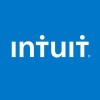From an initial dream of being a doctor to interning with NASA to eventually landing in the C-Suite at Intuit, Atticus Tysen (LinkedIn) has traveled a long and winding road. As the CIO of Intuit, which makes products such as QuickBooks and TurboTax, and brings in more than $5 billion per year in revenue, Atticus has a lot of responsibilities on his plate. IT, he says, is the Achilles heel of an organization and being in charge of IT for a company as large as Intuit means there are many challenges but just as many exciting innovations and success stories.
On a recent episode of IT Visionaries, Atticus discusses all of that and more, and he digs deep into how the processes and products Intuit creates ultimately always comes down to what is best for the customer.
Here are some of the major points Atticus made during the chat.
Growing into the role of CIO takes time
Prior to getting into IT, Atticus admits that he really didn’t know how the company was run or how it worked. Once he entered the world of IT, he had a greater understanding of exactly how Intuit operated in every way because IT was involved in everything.
When he was elevated to the role of CIO, though, that involvement was stepped up another notch. For the first year in the CIO role, Atticus says he mainly was putting out fires, learning operations and the technology involved, and, eventually, figuring out ways to provide advantages to the company through technology.
“10 years ago, I think if you were the CIO, your job was to implement stuff,” he says. “Now as the CIO, you’re job is not to do that. Your job is to help make sure your company is using technology the best it can. And it doesn’t mean you own everything and it doesn’t mean you operate everything, but it does mean you’re trying to make sure it’s secure and it scales. But technology comes from all over the place. And as the CIO, you’ve got to have a view of all of that and really make sure your company is doing the best it can. That’s a very different job than implementing.”
Deciding on governance needs to be about meeting customer needs
Atticus says that governance ultimately comes down to what is best for the customer.
“If providing a unified experience for the end customer is important and everybody agrees that it’s important, you’re going to have the right level of governance kind of fall out of that,” Atticus says. “You’re going to have governance around maybe the way you touch the customer, tracking that and being able to have a consistent view….If as a company that doesn’t matter, like if you really are five separate products and you know there’s not a lot of overlap in your customers, then you don’t worry so much about that. And so I think it has to start with what’s the experience you want to provide your end customers and let that conversation naturally happen. And I think often the role of the CIO or the head technology person is to force that conversation a little bit because the individual product teams may not see it and may not understand it. And so, but you have to force it. It doesn’t mean you should decide which is the right technology, but you have to force them to have that conversation.”
At Intuit, the relationship with the customer has been important from the start. Intuit began a program called “Follow Me Home,” in which if a customer bought a product, someone from Intuit would follow them home or to their office to see exactly how the product was being used and what could be improved for that customer.
“That concept of ‘Follow Me Home’ or ‘Follow Me to the Office’ really started with us 36 years ago in the founding of the company from Scott Cook, our founder,” Atticus explains. “The belief is you can’t really understand a customer until you go observe them in their environment. So we do software for small businesses, but you don’t really understand what a small business owner is facing until you go see their environment and where they’re trying to do. Their accounting might be in the back of their coffee shop or it might be in the back of their mechanic shop or it might be at home. And understanding the context is super helpful. So that translates to IT as well.”
Looking toward the future
One of the new technologies Atticus is excited about is A.I. And at Intuit, Atticus explains that they are trying to leverage A.I. to benefit their customers. The first foray with A.I. and machine learning was when they built algorithms to provide TurboTax users answers or suggestions to common problems they were posting about in the live community. Today, the engineers at Intuit are trying to use A.I. to help with form completion and finding ways to make life easier for customers so they don’t have to input unnecessary or redundant information.
“Ultimately we really want to make sure that you as a customer are not having to deal with the drudgery of entering numbers and crunching numbers,” Atticus says. “Rather you’re more getting to better insights and having better conversations with your accountant or your financial advisor. And so we’re really excited about how to apply A.I. and M.L. to some of the big data sets that we have.”
To hear more from this interview, check out the full episode of IT Visionaries here.





